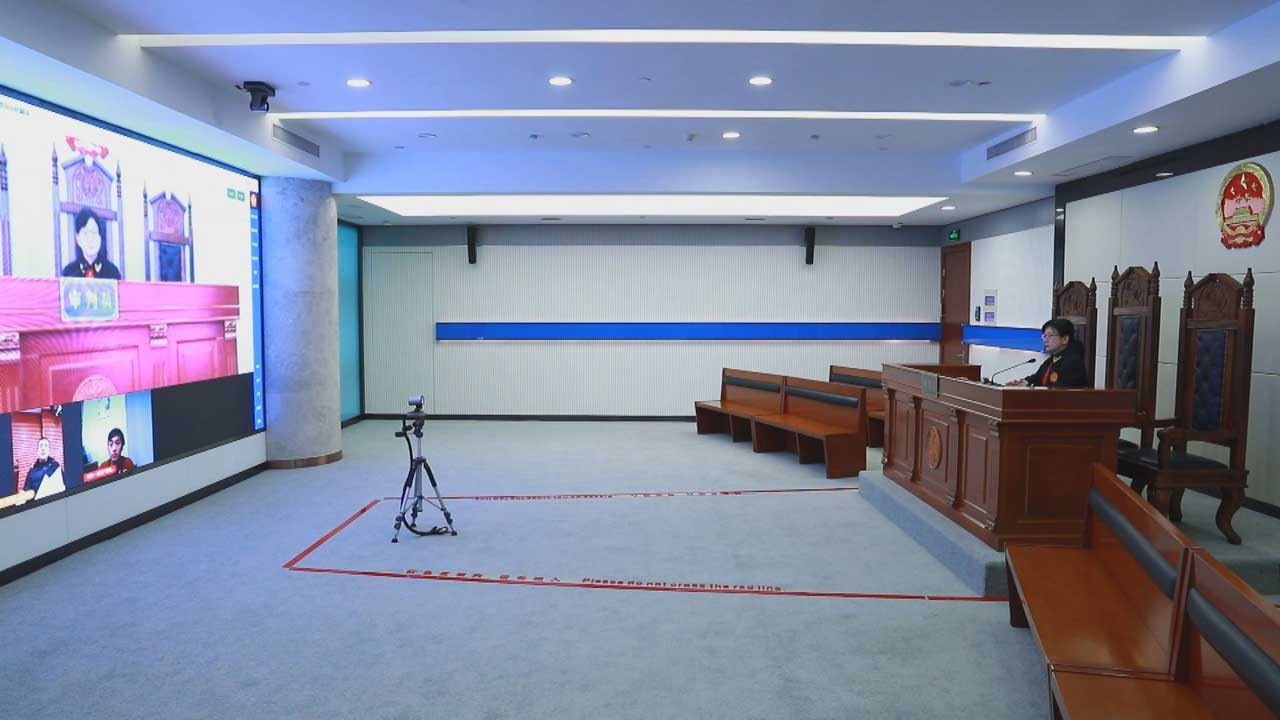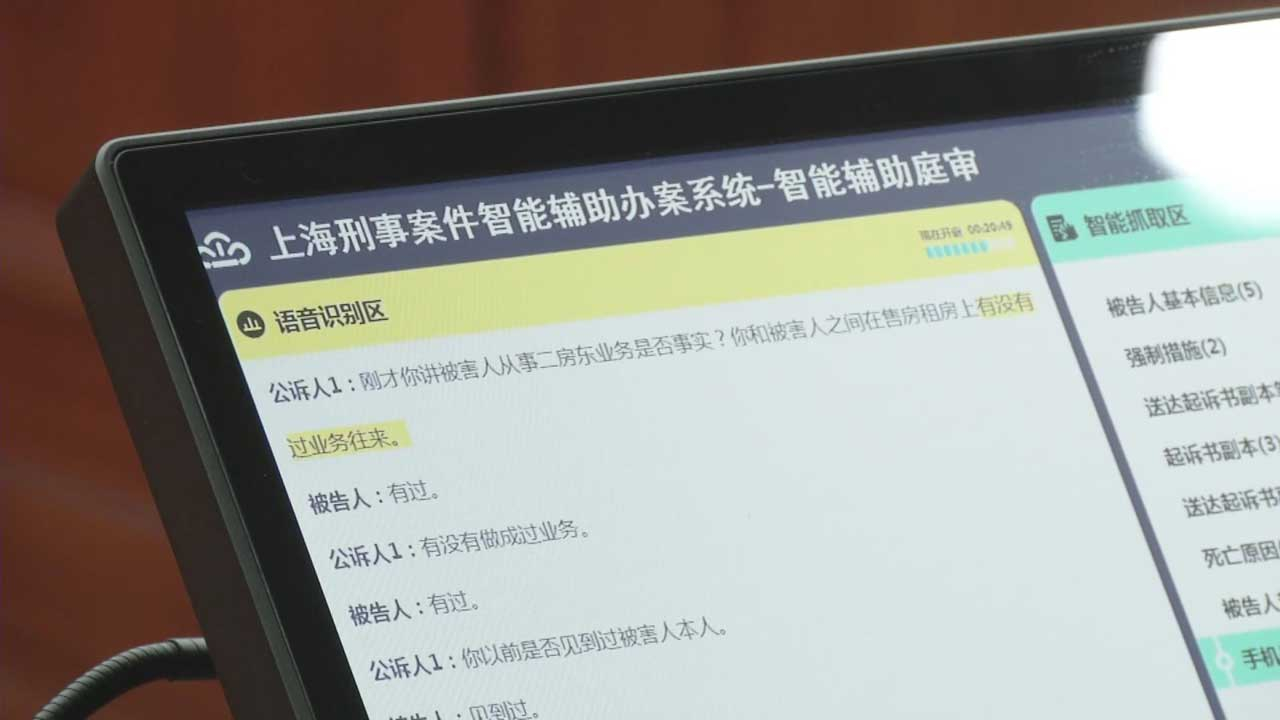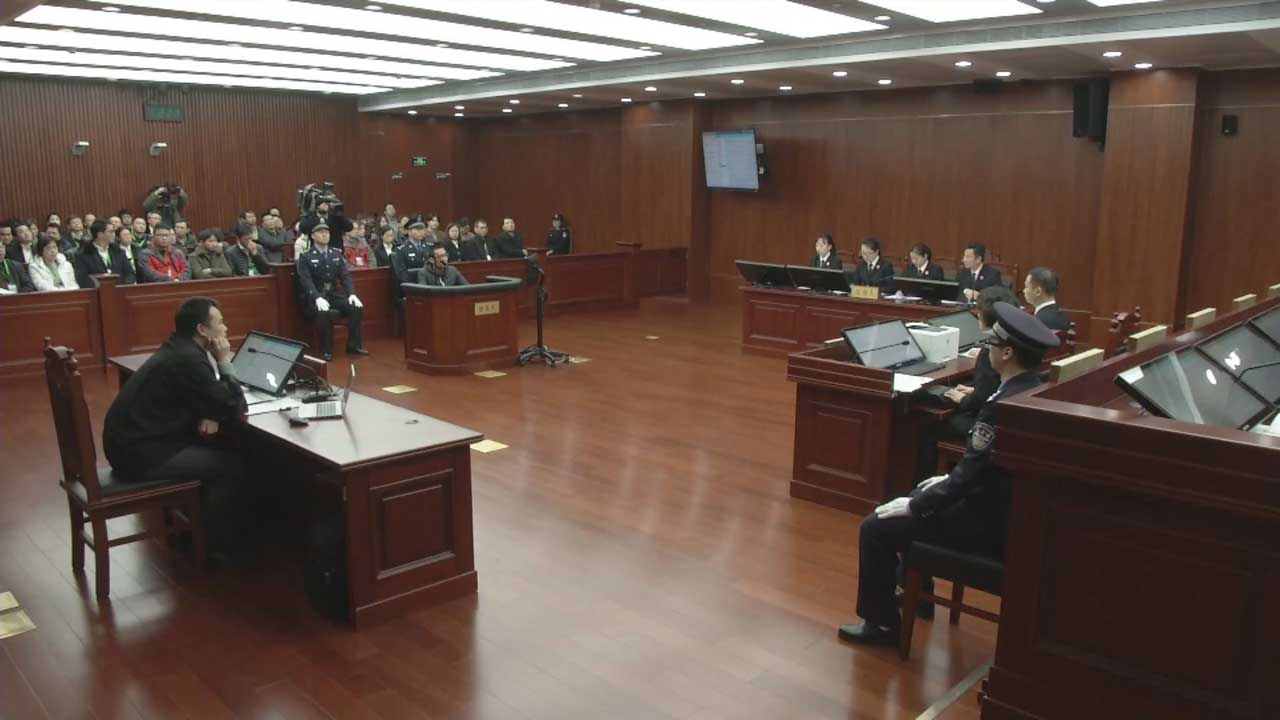
Technology
10:56, 23-Feb-2019
AI-aided justice: How technology is changing Chinese courts
Updated
14:29, 23-Feb-2019
By Wu Lei
02:36

A Shanghai court has become China's first court to officially adopt an artificial intelligence-supported software to facilitate judicial hearings, with judges and prosecutors using the new technology to improve efficiency and accuracy in delivering justice.
This also means using less paper and manpower.
The software was first put to test in January during a case involving robbery and murder.

No paperwork was filed during the trial and nearly all evidence were presented in the court through electronic display. /CGTN Photo
No paperwork was filed during the trial and nearly all evidence were presented in the court through electronic display. /CGTN Photo
Huang Boqing, a deputy chief judge of the Shanghai No. 2 Intermediate People's Court, told CGTN that during previous trials, identifying and verifying evidence took a lot of time and attention. But the new AI software is helping them get better results in lesser time.
The system can act as a stenographer, transcribe testimonies, and identify judges, prosecutors, defendants and witnesses according to their roles.
Cui Yadong, a former president of the Shanghai High People's Court, told CGTN that from investigations to prosecutions to delivering justice, the AI system works through the entire procedure.

After Shanghai, the AI support system is expected to be launched in other courts across the country. /CGTN Photo
After Shanghai, the AI support system is expected to be launched in other courts across the country. /CGTN Photo
In addition to criminal cases, Chinese courts are also using information technology to handle online disputes and civil cases.
At the Hangzhou Court of the Internet, the lawyers representing their clients don't even need to be physically present in the courtroom. They can present their arguments before the judges using an online communication system.
Ni Defeng, the vice president of the Hangzhou Court of the Internet told CGTN that they are planning to reshape the entire trial process for Internet-related cases to overcome logistical problems.
However, Ni also acknowledged that several challenges remain as judicial reforms continue. He stressed that data security and technology neutrality will always be paramount for the benefit of everyone's legal rights.
(Cover: The Shanghai No. 2 Intermediate People's Court has become the first court in China to adopt a new artificial intelligence-supported system. /CGTN Photo)

SITEMAP
Copyright © 2018 CGTN. Beijing ICP prepared NO.16065310-3
Copyright © 2018 CGTN. Beijing ICP prepared NO.16065310-3